
Sir Arthur Wing Pinero was an English playwright and, early in his career, actor.

The Second Mrs. Tanqueray is a problem play by Arthur Wing Pinero. It utilises the "Woman with a past" plot, popular in nineteenth century melodrama. The play was first produced in 1893 by the actor-manager George Alexander and despite causing some shock to his audiences by its scandalous subject it was a box-office success, and was revived in London and New York in many productions during the 20th century.

St Mary Mead is a fictional village created by popular crime fiction author Dame Agatha Christie.
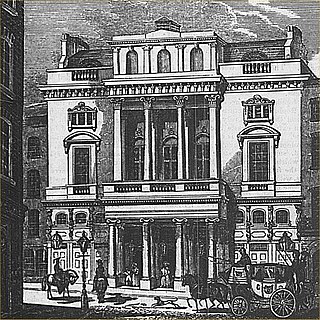
The St James's Theatre was in King Street, St James's, London. It opened in 1835 and was demolished in 1957. The theatre was conceived by and built for a popular singer, John Braham; it lost money and after three seasons he retired. A succession of managements over the next forty years also failed to make it a commercial success, and the St James's acquired a reputation as an unlucky theatre. It was not until 1879–1888, under the management of the actors John Hare and Madge and W. H. Kendal that the theatre began to prosper.
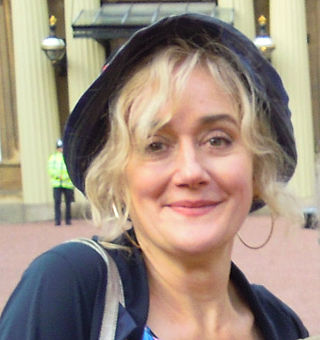
Sophie Thompson is a British actress. She has worked in film, television and theatre and she won the 1999 Olivier Award for Best Actress in a Musical for the London revival of Into the Woods. She has been nominated for the Olivier Award five other times for Wildest Dreams (1994), Company (1996), Clybourne Park (2011) Guys and Dolls (2016) and Present Laughter (2019).
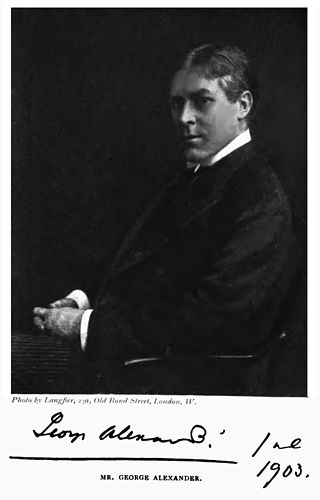
Sir George Alexander, born George Alexander Gibb Samson, was an English stage actor, theatre producer and theatre manager. After acting on stage as an amateur he turned professional in 1879 and, over the next eleven years, he gained experience with leading producers and actor-managers, including Tom Robertson, Henry Irving and Madge and W. H. Kendal.

The Boy is a musical comedy with a book by Fred Thompson and Percy Greenbank, music by Lionel Monckton and Howard Talbot and lyrics by Greenbank and Adrian Ross. The original production opened at the Adelphi Theatre in London in 1917 and ran for 801 performances – one of the longest runs of any musical theatre piece up to that time. It had successful foreign productions and tours.

Those Were the Days is a 1934 British comedy film directed by Thomas Bentley and starring Will Hay, Iris Hoey and John Mills. It was based on Arthur Wing Pinero's 1885 farce The Magistrate and was the first of two Hay movies based on Pinero's plays, the other being Dandy Dick. The film also features music hall acts of the time – acts of a type rarely committed to film. It is primarily remembered as Will Hay's first major screen role.

Christopher Ravenscroft is an English actor, best known for his recurring role as DI Mike Burden in The Ruth Rendell Mysteries, the ITV adaptation of Ruth Rendell's Inspector Wexford mysteries.

Arthur Cecil Blunt, better known as Arthur Cecil, was an English actor, comedian, playwright and theatre manager. He is probably best remembered for playing the role of Box in the long-running production of Cox and Box, by Arthur Sullivan and F. C. Burnand, at the Royal Gallery of Illustration.

Lottie Venne was a British comedian, actress and singer of the Victorian and Edwardian eras, who enjoyed a theatre career spanning five decades. Venne began her stage career in musical burlesque before moving into farce and comedy. She appeared in several works by each of F. C. Burnand and W. S. Gilbert and was often in plays with Charles Hawtrey later in her career.
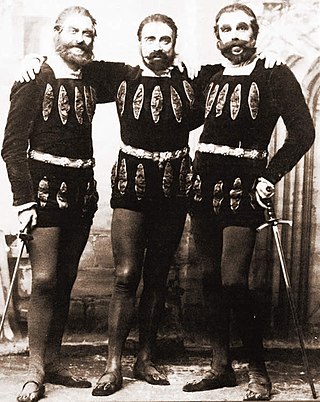
William Lugg was an English actor and singer of the late Victorian and Edwardian eras. He had a long stage career beginning with roles in several Gilbert and Sullivan operas and continuing for over four decades in drama, comedy and musical theatre. Later in his career, he appeared in nine silent films in the early years of British cinema.

Box and Cox is a one act farce by John Maddison Morton. It is based on a French one-act vaudeville, Frisette, which had been produced in Paris in 1846.

Dandy Dick is a three-act farce by Arthur Wing Pinero, first performed in London in 1887. It depicts the complications arising when a respectable clergyman is persuaded to bet on a horse race to subsidise building works on his church. The play has been revived several times and has been adapted for the cinema, radio and television.
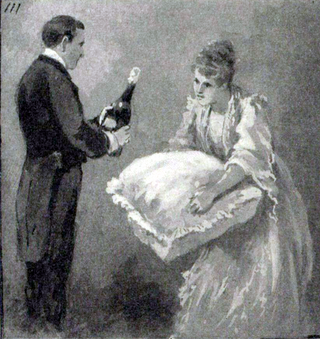
The Gay Lord Quex is an 1899 comedy play by the British playwright Arthur Wing Pinero. It depicts the vicissitudes of a reformed philanderer attempting to embark on monogamy. The original production provoked controversy, some critics finding the plot at best questionable and at worst immoral.
The Magistrate is a 1921 British silent comedy film directed by Bannister Merwin and starring Tom Reynolds, Maudie Dunham and Ethel Warwick. It is based on the 1885 play The Magistrate by Arthur Wing Pinero.

A Cuckoo in the Nest is a farce by the English playwright Ben Travers. It was first given at the Aldwych Theatre, London, the second in the series of twelve Aldwych farces presented by the actor-manager Tom Walls at the theatre between 1923 and 1933. Several of the cast formed the regular core cast for the later Aldwych farces. The plot concerns two friends, a man and a woman, who are each married to other people. While travelling together, they are obliged by circumstances to share a hotel bedroom. Everyone else assumes the worst, but the two travellers are able to prove their innocence.
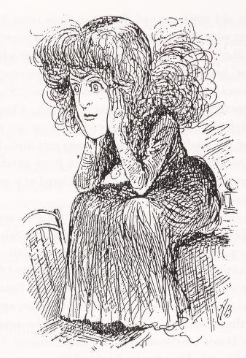
The Schoolmistress is a farce by Arthur Wing Pinero. It depicts the complications at a girls' boarding school when the headmistress is away, leaving her feckless husband in charge.

John Alfred Calthrop known as John Clayton was an English actor. After building a career in a range of parts, he became best known for his roles in the farces of Arthur Wing Pinero. With Arthur Cecil he was joint manager of the Court Theatre in London from 1883 until his death, aged 43, while on tour in Liverpool.

Pauline Jameson was an English actress whose work encompassed stage and screen. The Times called her "one of the most distinguished classical actresses of her generation".





















